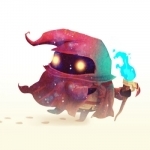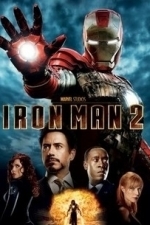
Lonely Planet Pocket Orlando & Walt Disney World Resort
Lonely Planet and Jennifer Rasin Denniston
Book
Lonely Planet: The world's leading travel guide publisher Lonely Planet Pocket Orlando & Walt Disney...

Lonely Planet Yellowstone & Grand Teton National Parks
Lonely Planet, Bradley Mayhew and Carolyn McCarthy
Book
Lonely Planet: The world's leading travel guide publisher Lonely Planet Yellowstone & Grand Teton...

Lonely Planet Yosemite, Sequoia & Kings Canyon National Parks
Lonely Planet, Sara Benson and Beth Kohn
Book
# 1 best-selling guide to Yosemite, Sequoia & Kings Canyon National Parks* Lonely Planet Yosemite,...

Lonely Planet Zion & Bryce Canyon National Parks
Lonely Planet, Christopher Pitts, Greg Benchwick and Carolyn McCarthy
Book
Lonely Planet: The world's leading travel guide publisher Lonely Planet Zion & Bryce Canyon National...

Daily Word Search Puzzles
Games and Entertainment
App
Welcome! Find the words as fast as you can as you test your diagonal and backward reading skills!...
LeftSideCut (3776 KP) rated Iron Man 2 (2010) in Movies
Jul 10, 2020
Iron Man 2 is in of these titles, and whilst bit a far cry from a bad movie, the formula wasn't quite there yet.
It's main issues comes from the writing I think. The plot dates to tackle issues such as Tony Stark's trouble with alcohol, a result of slowly being poisoned by the very mechanism that's keeping him alive. He hits rock bottom, pisses off everyone he loves, creates a new element (in probably the most ridiculously convoluted and stupid scene in the MCU) and somewhere amongst all this, there's some big dumb superhero action.
As much as I admire this route, the balance is off, and a big chunk of the movie gets bigger down by these issues.
The side plot that involves a B list villain Whiplash is a nice touch, but it's ultimately wasted in yet another ending brawl that features the hero against an evil version of himself, the second Iron Man film to be released and the second Iron Man film to feature a final boss in a bigger Iron Man suit. It just doesn't feel over imaginative.
It's not all bad though - Iron Man 2 boasts an incredible cast of talent. Robert Downey Jr. and Gwyneth Paltrow of course return from the first movie. Mickey Rourke is the aforementioned Whiplash (I find it hard to dislike Mickey Rourke in general), Don Cheadle takes over the mantle of War Machine, and of course we get the first appearance for Scarlett Johansson as Black Widow.
And a big reason why Iron Man 2 is better than it should be is down to the always fantastic Sam Rockwell. He plays secondary villain Justin Hammer and he oozes charisma, and fits in effortlessly opposite Downey Jr.
Other than that, the effects still hold up for the most part, and the set pieces are fun - the racing track scene is a particular highlight, and its always a treat to see the wider MCU being established as the main plot chugs along.
Iron Man 2 isn't as good as it's predecessor, and is at the lower and of the MCU quality spectrum, but there's still a lot to enjoy if you switch off a bit.
LeftSideCut (3776 KP) rated Guardians of the Galaxy (2014) in Movies
Nov 13, 2020
GOTG was a very niche property before hand. A bunch of little know Marvel characters galavanting around space, with revolving line ups involving inconsistent degrees of absurdity. The fact that batshit crazy characters such as Groot and Rocket Raccoon are now household names is an indication of just how effective this movie was.
James Gunn proves that he is the man for the job by melding together his own signature style (alongside his regular collaborator Michael Rooker of course) with the tried and tested Marvel formula of big action, and frequent humour. It's a toss up between this and Thor Ragnarok for funniest MCU movie for sure. Nearly every joke lands well, and unlike the sequel, the humour is never overdone. The balance is near perfect.
The cast are mainly to thank for that of course. Chris Pratt, Zoe Saldana, Dave Bautista, and the voice talents of Bradley Cooper and Vin Diesel make up the titular Guardians, and they are all unique and have intriguing back stories. They are well developed as the film plays out, and together make for an irreplaceable band of misfits.
The supporting cast include the aformentioned Michael Rooker, Karen Gillan, John C. Reilly, Lee Pace, Glenn Close, Peter Serafinowicz, Sean Gunn, Djimon Hounsou, Benicio Del Toro, and a first appearance by Josh Brolin as Thanos... It's another undeniably impressive ensemble cast for the MCU.
The special effects on display here are incredible. The whole film looks amazing and the big set pieces are hugely entertaining, and emotionally charged...These characters make a quick impression!
The only real criticism I have is that Ronan the Accuser, this films main antagonist, feels a little wasted. He looks great, and Lee Pace does the best with what he's given, but by the time the credits roll, he unfortunately joins the big pile of disposable MCU villains.
It's a small gripe when compared to all the good in this movie - that includes it's fantastic soundtrack by the way.
Guardians of the Galaxy is wonderful. It's proof that studios no longer have to rely on the big A-list names to make a great film, and as a result, this opened the doors for even more weird and wonderful characters to make their way into this behemoth of a series. One of my personal favourite MCU entries.

Weather Cast - Local & World Live Weather Forecasts & Alerts
Weather and Travel
App
Get the current weather conditions and 4-day forecasts in your city & anywhere in the world! Off...

Weather Cast HD : Live World Weather Forecasts & Reports with World Clock for iPad & iPhone
Weather and Utilities
App
Get the current weather conditions and 4-day forecasts in your city & anywhere in the world! Off on...

Road Not Taken
Games
App
"It looks like a cute fairy tale, but this is a turn-based game that's thorny with challenge and...

